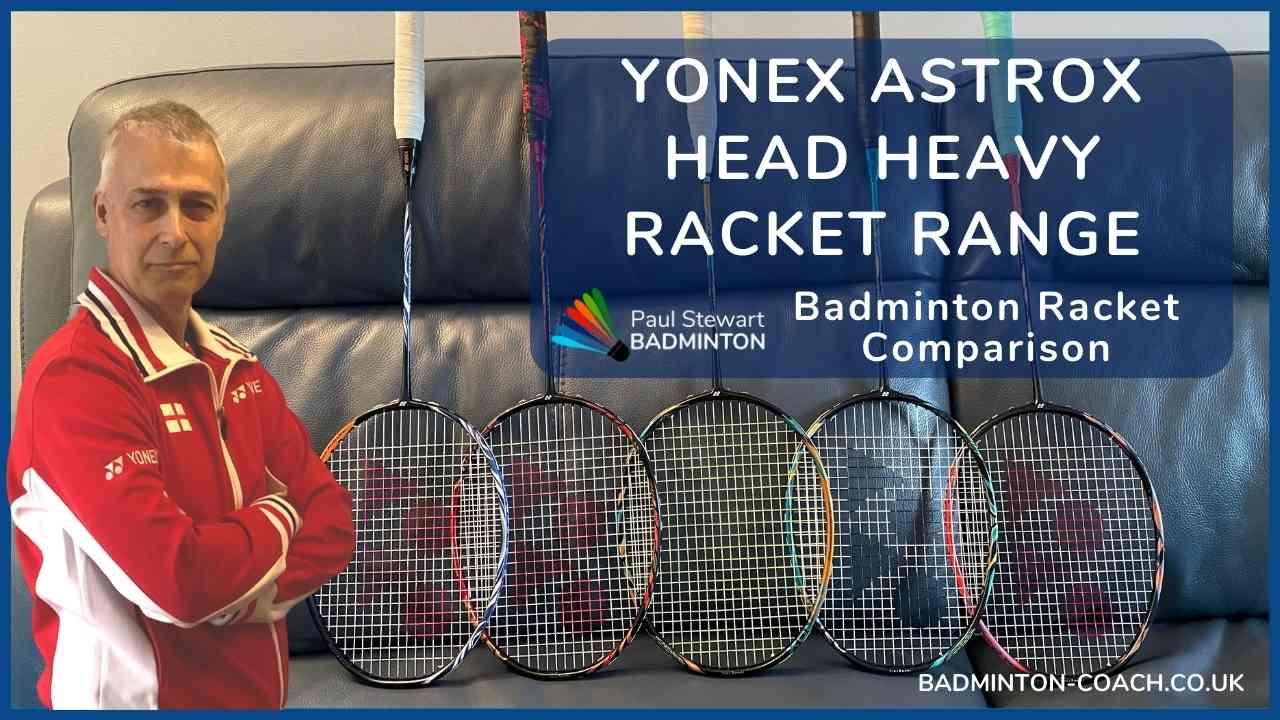I’ve been following a very interesting thread on my forum recently where members have posted a range of scenarios that have contributed to a change in fortunes on court with disappointing and frustrating results.
It’s sometimes very difficult to stop situations like these occurring. However, there are a number of tools you can adopt to protect yourself from falling into the same trap and being drawn into almost unrecoverable and destructive mindset that can cost you more than the game itself.
We’ve all been on court at times when we’re really in the “zone” seeing the shuttle so much earlier, hitting free of tension and playing superbly well, reading situations and being on top of our game. So why can’t we do this more often? Let’s explore.
Let’s take a look at a few situations…
Situation #1
You have a commanding lead, having won the first game. Suddenly your partner eases off and let’s a few points slip by.
Before you know it, you’re drawn into the same mindset as your partner and you lose the second game. Your opponents now have the upper hand and you’re struggling to find the form you displayed in the opening game and the early stages of the second game.
How do you deal with situations like these?
First of all, recognise something very important. Whatever happens around you, you are choosing to follow a pattern of behaviour. In fact, it’s probably happened before and your mind recognises it. Therefore it’s easy to fall into the same behaviour pattern again.
With this in mind you need to deal with this off court. Think back to the time this first happened to you. Replay the match in your mind. When this first happened, you chose to follow the behaviour of your partner. Why was that? What positive feelings did this behaviour give you at the time? Was it a sense of belonging, comradeship?
If this happened when you were young, then there could have been many impressionable thoughts based on insecurities at the time that are no longer in your immediate psyche, but buried somewhere deep down e.g. respect for your then partner who may have been older and someone you looked up to.
Search for the answer and when you find it, you need to recognise that this was a behaviour learned when you did not know better. Decide today that this behaviour no longer serves a purpose for you and who you are today, and that this behaviour will never be required again in situations like this. This behaviour will now be replaced by a controlled, aggressive, fast thinking, fast acting highly skilled badminton player. (note if you are to remove a behaviour, you need to replace it with something).
OK, I’m going deep here, but, that’s what sports performance is all about – it’s finding the little keys that will open up a far superior state of mind.
So, what can you do on court?
You need to listen to your self-talk very carefully. It’s common that we all talk to ourselves during the day by way of thought. What we say to ourselves has a huge bearing on the outcome we achieve e.g. if we say, “I’m not playing well today and keep hitting the shuttle out,” then our brain hears this, decides it’s an instruction and continues to help you not play well and hit shuttles out.
In this case, if you said “I am a highly skilled badminton player, taking too many high risk chances. I’ll keep the shuttle in from now on by playing a little more inside the court” then chances are that’s what you will do.
Back to our example…
So if your partner is having an off day you could change your self-talk to super charge your game. You could say “my partner is getting a bit tired so I need to really focus and see the opportunities to set up or kill the shuttle so that they can get some rest and be ready for the next round of the tournament.”
I’ll guarantee the outcome of this kind of self-talk will be considerably different to what you’re currently saying.
Scenario #2
This is similar to number one. You’re playing at club night against lesser players or you have a huge lead. Yet again, you fall into the trap of easing off. What do you do?
Again, watch your self-talk.
What you need to be doing is “re-framing” the situation in your mind to change the result. So instead of “why am I playing with these players – they’re dragging my game down.” You could change this to “it’s time I raise my game and demonstrate how quality play can change a game.”
Different words – different outlook=different result
Also, if you’re going on court with lesser skilled players, this is a time where you can work on your game. Choose one thing to focus on e.g. see how many times you can return the serve to one area to either set up an opening for attack or kill the shuttle.
Again, these are simple mindset changes which are very effective.
Scenario #3
I call this the “it always happens to me syndrome.”
I was recently talking to a student of mine who was describing a training session of singles games he had against a certain player. When I asked the final score he told me he lost 6-2 in games. Mmm, I thought, before asking him “what was the score the previous time you played him?”
Oh, 6-2 to him he replied. Interesting. “Is this a frequent score then?” Yes.
I then explained that if he had won two games, this meant that he was capable of beating this other player every time he played.
Following this I then asked him “are the scores close in the games you lose?” Yes, I usually lose 21-18 or 19. I’m always up and then give away a few easy points and let him back into the game. I can’t seem to close out the game.
That’s it – I understand now! If this sounds familiar then listen up…
What happens here is that my student has conditioned his mind to behave in a certain way since the first time he played this other county player. He’s conditioned his mind to lose 6-2. Therefore if he’s in a commanding lead which would break the 6-2 score, his self-sabotage behaviour pattern intervenes and creates the conditions where he makes a series of errors to change the score.
At the end of the game, whilst he’s lost and disappointed, he also has a feel-good feeling because he’s returned to his comfort zone where he’s most secure.
The question now is “in which circumstances around you are you self-sabotaging?”
Once you understand what’s happening, you can do something about it.
1) Listen to your self-talk. What are you saying to yourself? How do you choose to respond to this with the feelings you generate?
2) Who in your past or present do you look up to as a role model for being a professional athlete who has achieved all there is in their chosen sport? What do they sound like?
3) Substitute the professional voice for the one that has been talking to you. What words would the professional say to you in situations where self-sabotage takes place? What are they saying to you now that sends a shiver down your spine and changes how you feel and makes you want to give more than you’ve ever given before?
4) Agree with your professional athlete that you have sacked the previous guy and that they are now hired to work with you on and off the court to help you achieve all you can in sport and life.
5) Never go on court without a plan. This could be to practice one shot or a complete game plan to take on your opponent(s). In doubles, make sure your partner has bought into the plan too.
6) Recognise that there are times when you will meet the better player. In situations like these, you and your professional athlete will give respect where it’s due and work out the best plan you can. You also remember that this is your greatest test, a challenge you have been training for, and you are ready to raise your game and fight for every point.
Summary
Some of you may be wondering what this article is all about whilst others have grasped it and are ready to make changes. There are plenty more tools you can use such as music to always get you in the mood to play well.
I used to use the theme tunes to Rocky films like Eye of The Tiger to really psyche me up for a game. Which tune do you use to get you into the right frame of mind to win? If you haven’t got one, find a tune that sends that feel-good shiver down your spine. Now capture it on mp3 and take it with you wherever you go.
You need to remember that we are not provided with an instruction manual to understand our minds. However, our mind is an amazing, powerful tool that drives us forward way beyond our perceived limits or can stop us in our tracks with self-sabotage tactics.
All our behaviours are learned over the years, even winning and losing. As we choose our responses to all the various stimuli around us, recognise that the key word here is CHOOSE. We are therefore capable of re-learning and changing our patterns of behaviour and therefore creating a completely different outcome.
That’s why you’ve seen such amazing transformations on television when you see a person freak out when they see a snake or spider and after 20-30 minutes of conversation with a specialist they have the snake around their neck or spider in their hands looking at it with completely different eyes. This is NOT making someone do something they don’t want to do, but removing the trigger for a learned “immediate response” behaviour and then replacing the behaviour pattern with completely different feelings and therefore different actions.
Feel free to ask questions or comment on this subject either using the comment box below or on my forum.












Another way of avoiding self-inflicted sabotage is to remember that the mind only works forwards. Anything you say to yourself or to your playing partner (if doubles) when playing or waiting to play will automatically programme your next move. It doesn’t matter whether you talk to yourself or your partner and it doesn’t matter whether what you are saying to yourself would be considered positive or negative, the point is that the body responds to the ‘instruction’ regardless.
Therefore the way to avoid self-inflicted sabotage is to put your mind in neutral before your next move. That has the effect of clearing your mental cache and rebooting or restarting your mental processes, as distinct from resuming where you left off.
During play, the secret is to be totally present and allow the experience of playing to flow, rather than be thought at. For example, unless you are a top player whose mental agility and physical fitness is always on the ball, so to speak, the chances of being able to achieve a desired outcome whilst at the same thinking of that outcome is unlikely. More likely the act of thinking even for a split second will be enough to throw your mind and body off balance.
Interesting way of describing this and you raise some good points. It is important to set your mind for the next point rather than dwell on what happened previously, providing you learn from the past. If every point is played with intention then you will be carrying out tactics very well.
Looks like its written for me. 🙂
Very Nice & precise.
Thanks for this, I’ve been struggling with Scenario #2 recently on club nights and Scenario #1 a recent practice match. Since I started training over a year ago I can now beat all the players that I used to lose to on club nights…but I think that this has made me lazy and sometimes I take it too easy if I’m leading.
Next time I’ll try to get into your suggested frame of mind to up my game no matter who the opponent is.
I totally agree with you Paul!
I could never really understand this feeling… why do I keep losing 20 – 22 or 21 – 19 to the same individuals even though most of the time I am the one leading throughout the match.
This is something I must work on , I would like to thank you once more for this excellent advice!
as for when something goes wrong in a match, luckily I am trained by proffesional badminton players , one from poland and other from ireland, both tell me that when such situations occur it is most likely due to the reason of trying to finish the game too quickly and thus making the same mistake again and again. what is very important is to realise what it is your doing, be able to spot it and change the game, maybe a good idea would be to start playing the 2 back corners.
Just the article i was looking for. I always have this problem of reinstating bad mindset when i’m in my ‘off’ days. Whenever i missed a shuttle or hit the net..i always say to myself “Why did i hit the net again”..”Whats happening to me today”. This is especially true during tournaments :(.
The worst part, regadless if my opponents are superior or otherwise, i always tend to lose to many points in the beginning, and then really catch up in the mid or end of the game only to lose in the end. I believe i can beat them, if not i wouldn’t have been able to catch-up so close in the closing points of each game but somehow blew it in the end.
Looking forward to try this in my next badminton session onwards.
Weezzerr
Many thanks for your comments.
It’s very easy to allow your mindset to drag your game into an easy defeat. As you tend to lose the opening section of the game I wonder whether you are really preparing yourself for the game? Do you go into a game with a tactical approach and a game plan? If not, you could find my other articles helpful in determining your opponent’s style of play and the others on tactics.
At some part in the game you obviously figure out what’s happening and adapt, hence get on winning streak and catch up. However, this usually has a cost and takes its toll in terms of fitness. You’re then tired and the quality of your game suffers as a result. This allows your opponent to take the initiative and close the match. If this is so, then clearly there’s a fitness issue which you can easily address.
Good luck.
Paul
I agree with Matthew. It is a fantastic article!
I second that great article!
Ties in very much with a few things that I have been trying recently.
Music before I play- really seems to kick me out of tired work mode.
Have been playing with the idea of mental preparation- vaguely remember someone that decided that to be a person you had to look or dress like them. Waiter? sportsman ? I think it is quite well known your field, Paul?
Quick change and I came to the club looking and feeling a bit more like a Badminton Player, as I said music also helped.
Played with a friend that is of a similar level to me, against the top pair of our club. Players our level would expect to reach single figures in a game against them. We lost but 21-23 was as close as we could have hoped for. We both played well, but I reached a level I have never seen before, or not for years.
Now I have been feeling quite smug about this (loss!) all week but your article made me realise that we could have won, and should have.
I always play badly at this club because I get stressed there, playing with my friend relaxes me, and bizarrely I always play better against what I see as insurmountable odds- the pressure to win isn’t there I can relax and hit much better shots. We were in the lead at points but I always had it in my mind that we were going to lose. We came close but I had already decided what was going to happen.
I will re-read your article a few times, and they answer may well be there, but is there Any specific mental strategy to deal with pressure as opposed to mine of removing it? a version of ‘ aim low, you will never be disappointed.’ !
Fantastic article Paul. Excellent advice.